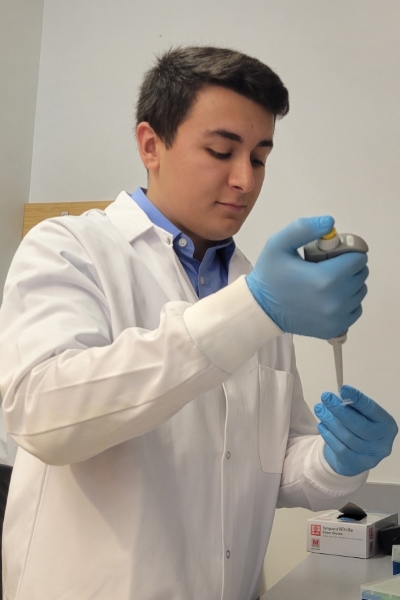
The chemistry program centers on the mastery of broad concepts in the classroom and development of independence in the laboratory. Introductory classes, averaging 25 students per section, and advanced classes, averaging 5-10 students, are taught by five Ph.D. chemists. The chemistry program is accredited by the American Chemical Society and was recognized by the Association of American Colleges in a nation-wide search for innovative departmental curricula.
Home to a unique laboratory curriculum that stresses the development of independent research skills, the chemistry department focuses on extended research projects rather than cookbook experiments. Students who graduate from this curriculum will have learned to work independently, keep research notebooks, manage their time, and speak before an audience on technical subjects. Chemistry alumni consistently enter quality graduate and professional programs or enter the workforce in a variety of corporate and industrial positions. The four-year integrated laboratory experience is a unique aspect of our nationally-recognized program. If you major in chemistry, all your lab work will consist of individual, open-ended projects, usually a semester long. You will need, and find available, a lot of help from the faculty on your projects and will rapidly develop skill and self-reliance as you approach chemistry like a professional scientist. You will concentrate on experimental design and interpretation of results, and oral and written reports on your projects will give you proficiency in scientific communication.
Degree Offerings
- Chemistry Major and Minor
- Biochemistry & Molecular Biology (BCMB) Major












